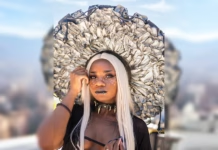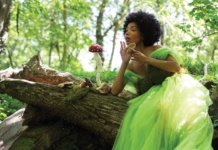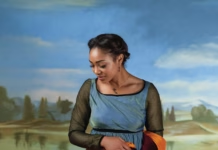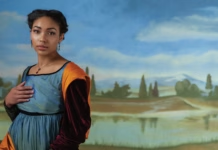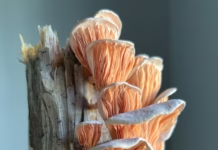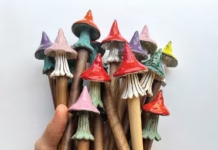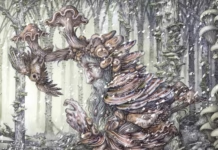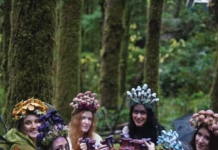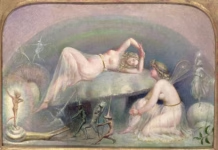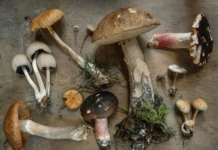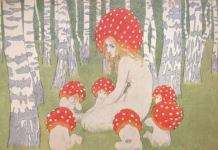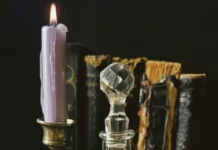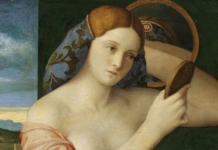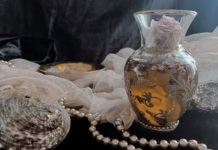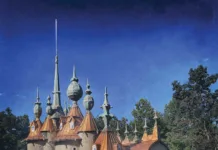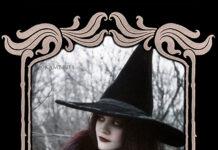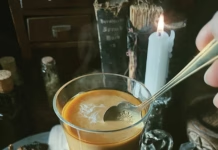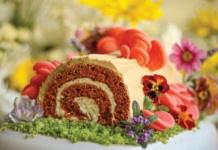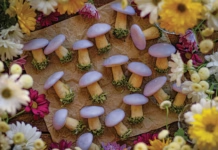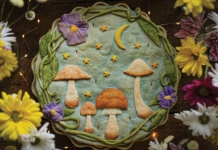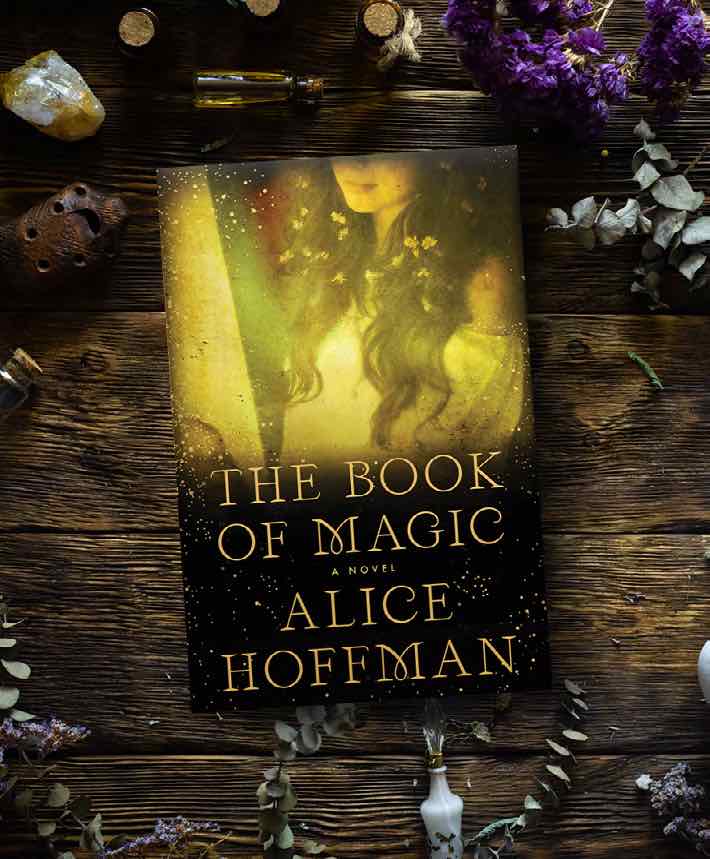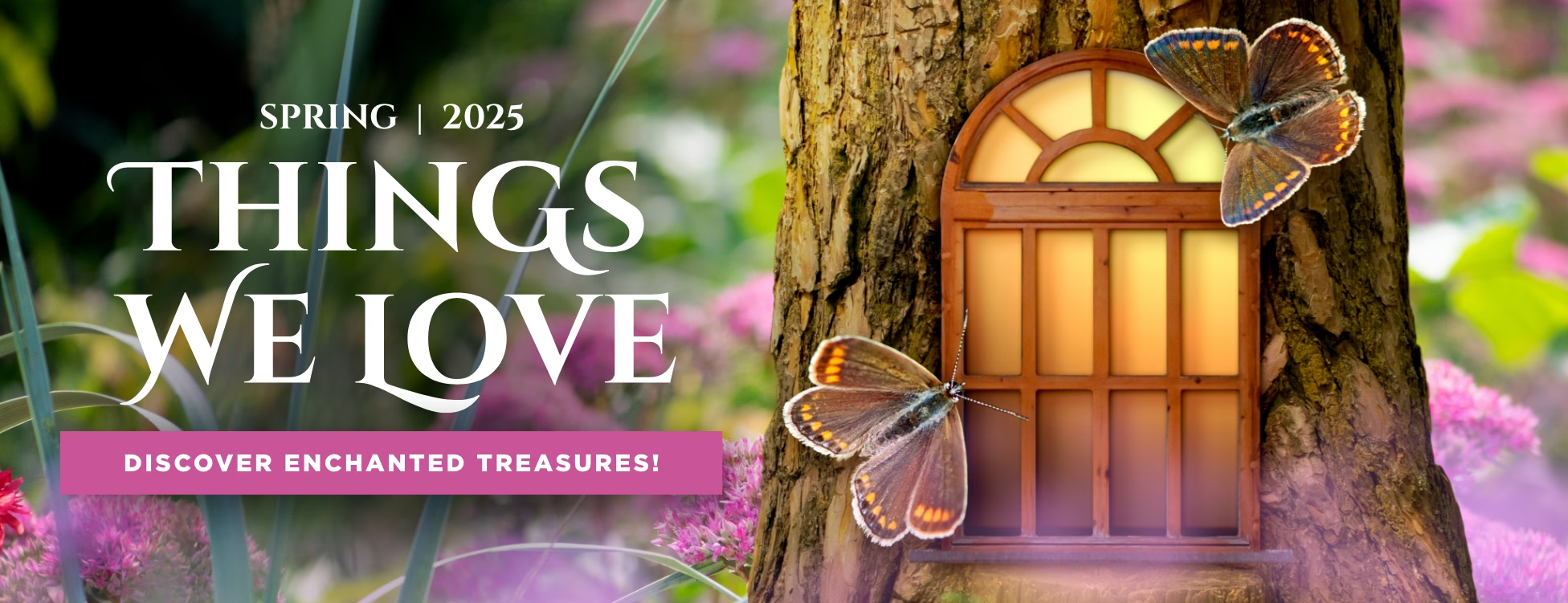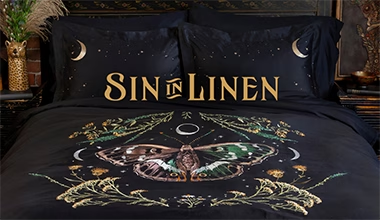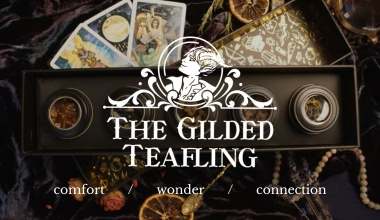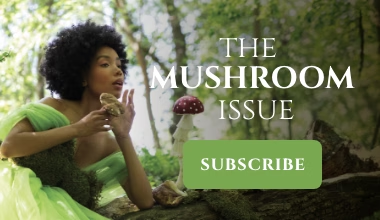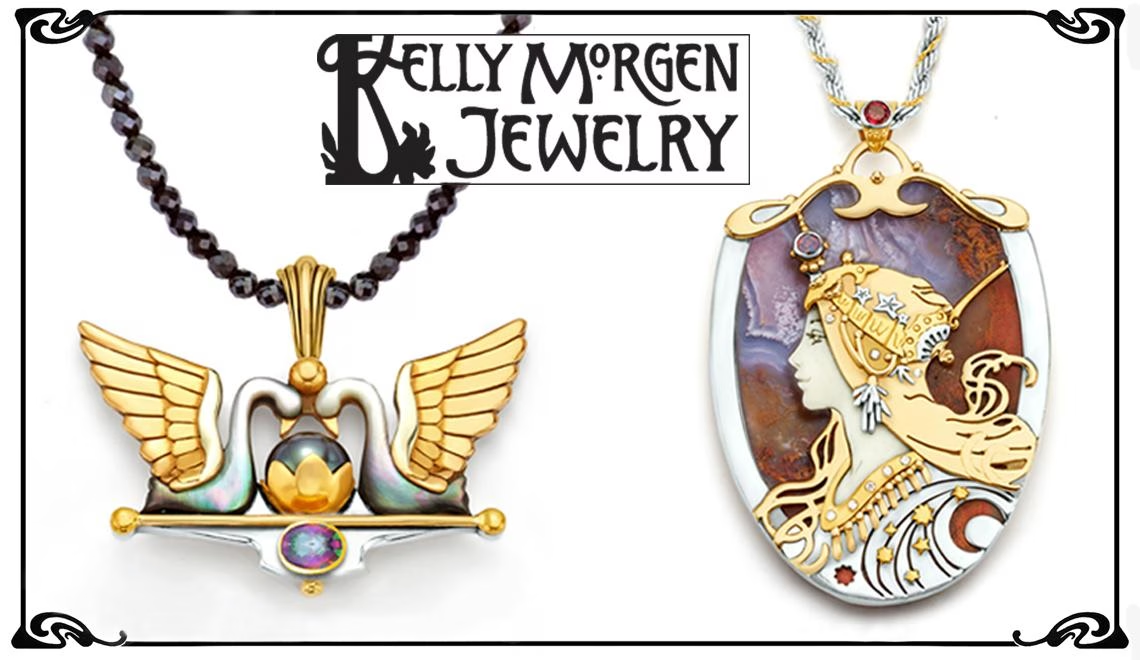Featured Image © Simon & Schuster
We’re huge fans of Alice Hoffman here at Enchanted Living. When her long-awaited prequel to Practical Magic came out in 2017, we did a whole issue dedicated to it, chock full of spells and poems and odes to magic that’s of the real world, just down the street and around the corner. We’re always thrilled when she has a new book to share. Now Hoffman has written the fourth and last book of the Practical Magic series, The Book of Magic, which wraps up the Owens women’s stories—all those witchy sisters and aunts and mothers who dispense herbs to the neighborhood ladies from their house on Magnolia Street and are destined to fall in love over and over again despite the curse that follows them. Below, our editor Carolyn Turgeon speaks with Hoffman about the Practical Magic books, not to mention witches and magic and the gifts—and abundance—of sisterhood.
Enchanted Living: In the cover note to The Book of Magic, you talk about that day in the summer of 1993 when you walked into a tiny shed on a marsh in Wellfleet,
Massachusetts, and Sally and Gillian, Franny and Jet, walked in after you, ready to tell their story. Can you talk about that a little more?
Alice Hoffman: Well, the way I came to Practical Magic was—I’d never done this before, but I do
make lists of titles, and I had this title Practical Magic. I just kept thinking that this was a terrific book. I don’t know what the book is, but I’m going to write it. I’ve never had that happen to me before. When I first sat down to write it, I felt like the characters had arrived. And that’s a really rare thing. The whole book came to me as a gift. It happened to me again with The Rules of Magic, when it turned out that Franny and Jet Owens had a brother Vincent. He just walked into the room, and there he was, fully formed.
EL: What do all these characters mean to you, after living with them all this time?
AH: They’ve come to mean a lot to me because it’s been over twenty-five years that I’ve spent with them, being in the same world with the same family with the same issues. Even when I wrote Magic Lessons, which takes place in the 17th century, with the character Maria Owens, her issues are the same issues that Sally and Gillian are dealing with centuries later. They’re a family that has been cursed in love, and really, the family goal is to break that curse. I didn’t understand that that’s what it was about. I think that sometimes you don’t really know what a book’s about until you write it. For me, it’s been an unfolding process over twenty-five years with these four books.
EL: Part of what happens in The Book of Magic is an attempt to finally break the curse, so it must have felt cathartic to write it.
AH: It was cathartic because I felt so involved with them and wanted them to be able to do that. I think that what happens with Maria in Magic Lessons [when she invokes the curse] is that she does what a lot of us do when we want to protect ourselves. And when you protect yourself from feeling anything, you’re kind of in trouble. I think that’s why I was always attracted to witches—it was the freedom to feel things and the freedom to be emotional and the freedom to follow your dreams or do what you want to do without caring much about what other people think. For many girls and women, the mythic figure of a witch is a very important figure, and witches have been kind of co-opted by—I don’t want to say the patriarchy, but I don’t know how else to say it—to be seen as ugly and old with warts. And yet, still, little girls want to dress up as witches on Halloween. Why is that? Because they have power.
And I think that’s a big part of these books. Who wants to be normal? Especially with Sally, her goal is to be normal, but when it really comes down to it, that’s not who she is, and that’s not what she wants to be. She’s afraid to take a risk, and she’s afraid to get hurt.
EL: What was the experience of the Practical Magic movie like for you? Did that shape how you saw those characters in that world or not?
AH: When I’m writing, I don’t think of people being those characters or actors as the characters. I loved the movie, and I love the fact that it’s gotten more popular every year. It’s really become a cult movie, and it means a lot to so many generations of women. I’m thrilled about that, and I love how it breathes life into what I imagined. I remember walking into the kitchen, which was on a set in Hollywood, and just thinking, This is the kitchen. This is the kitchen that I imagined, only better. I also feel that there aren’t that many movies about women’s friendship and sisterhood, and I’m proud to be involved with something that did that. I certainly didn’t grow up seeing that on the screen or even reading about it. Also, for me personally, I don’t have a sister. I don’t have a daughter. So for me, writing these books has been a way to feel as if I have those things and experience those things.
EL: Do you feel in a sense like you’re part of a sisterhood with these characters?
AH: I do.
EL: Which Owens woman do you relate with the most?
AH: I think it’s changed for me. When I first started writing Practical Magic, I felt a lot like Sally. I think, very often, people reading Practical Magic relate to either Sally or Gillian, and that can change during a lifetime. But to tell you the truth, I think that now I most identify with Franny. And as I’ve aged, as she’s aged, I know her better, and I just feel like she’s a character that I really know and understand. The thing about Franny is that she’s so dedicated to her family, to her sister and brother and nieces, but she has this kind of tough exterior. I feel a lot of empathy for her.
EL: I know you have a big collection of magic books. What about them appeals to you?
AH: There’s something about having your own library of books that are like little treasures to you. My magic library is like that. Some of the books, I don’t know where I got them. I don’t know if I could ever find them again. I’m surrounded by other people’s knowledge. They just seem like treasures to me.
EL: When did you know that you were going to do a fourth book?
AH: Well, that’s an interesting question because I never thought I would write more than the first book. And the only reason I did it was because my readers wrote to me and said they wanted another book. They wanted a sequel, but I did a prequel instead. I did The Rules of Magic because I’m always interested in going back in time and finding out what makes things tick and why people became who they were. And then with the third book, Magic Lessons, I decided I was really interested in Maria Owens. I wanted to go all the way back, even though it meant doing a lot of research.
In all honesty, I didn’t know that there would be the last book. I think, once again, it seemed almost to start itself. I did have this feeling that there needed to be some kind of closure for certain characters and that there needed to be some kind of closure about the curse. Were these characters ever going to be able to have a life where they could fall in love and not feel that they would be punished for it?
I think that’s true for a lot of people. A lot of people feel cursed in love. And I think you have to go back and deal with your early life experiences and that’s what they do in this book.
EL: So is this definitely the last Practical Magic book?
AH: Well, it’s definitely the last one about this group of people. I think it is the right ending for them. I could write about them forever, but it feels like it’s completed.
EL: Finally, the theme of this issue is abundance. Is there anything you’d say about that?
AH: I think this book is about sisterhood and women’s relationships with each other and what a huge gift that is in people’s lives, how it can change our lives. I’m certainly so grateful for my friendships. In a different time period, I maybe wouldn’t have been able to have these kinds of friendships because they just didn’t exist. So in the Practical Magic books, there is an abundance in terms of women’s friendship and how far they’re willing to go for each other and how much they mean to each other.
EL: I wanted to ask you about some of the things that keep coming up in the books that you must have a deep love for, like Emily Dickinson and daffodils and chocolate cake and black soap. Are these things just part of this fictional universe, or are they things that you love personally and so put them in the books?
AH: They are things that I love, and they are also things of this universe. I think part of the joy of writing is to create another world, taking parts of your own world and creating something completely different. These are little pieces of the world that I’m trying to create, the fictional world that I’m trying to create with these magic books.
The other thing is books. The Book of Magic is really a love letter to books. And in the book, I include a list of some of the books that I’m madly in love with and that the characters are in love with as well.
EL: Thank you so much for speaking with me! I’m so excited for this book to come out and everyone to read it.
AH: Thank you so much for coming up with these great questions and for your gorgeous magazine. I think you create a world. A world that a lot of people want to walk inside of. And that’s what I’m doing with these books. I want you to walk inside this world and be there for a while. And I want to be there too.
Find The Book of Magic wherever books are sold.



